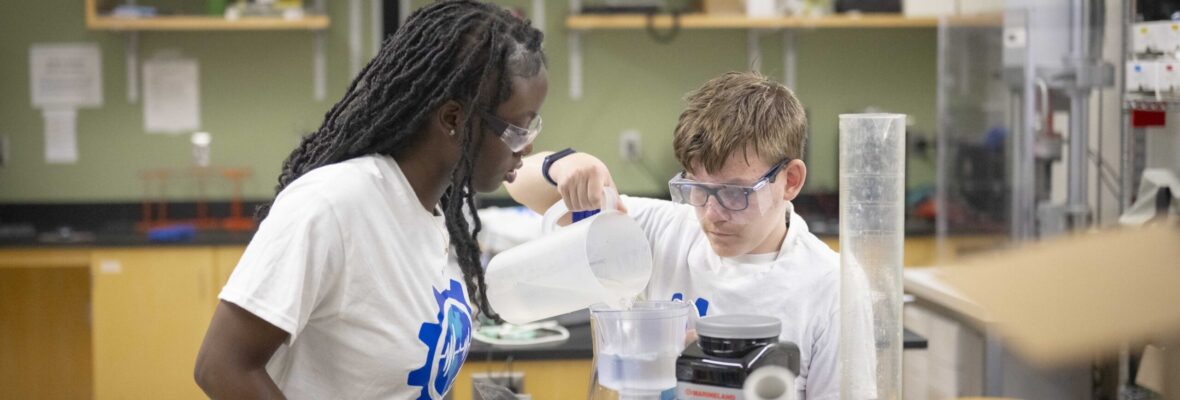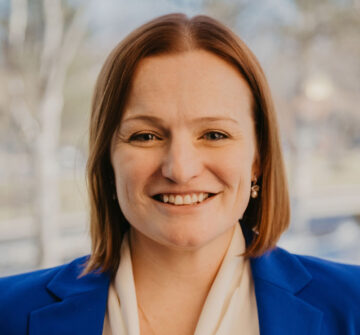Program Overview
The Massachusetts Life Sciences Center (MLSC) seeks to further the development and expansion of life sciences education and training for Massachusetts K-12 students by investing in impactful out-of-school time (OST) programs. The MLSC anticipates awarding transformational grants that enable non-profit organizations to implement new or expanded programming offered beyond the traditional school day, predominately serving underrepresented and/or low-income youth.
Investments made through this program seek to:
- Reinforce, complement, and supplement life sciences education currently offered by public schools.
- Provide students with new technical and professional skills development relevant for careers in the life sciences.
- Expose students to state-of-the-art life sciences equipment, tools, and technologies.
- Catalyze and grow innovative programming serving underresourced communities.
Applicants can request grant funding of up to $50,000 for program design and implementation costs, including personnel, operations, stipends, equipment, materials, supplies, and/or technology. Applicants will be asked to provide a detailed program description, plans for career awareness/exploration activities, identification of industry/community partners (and at least one letter of support), anticipated outcomes and evaluation plan, team qualifications, an itemized budget, and sustainability plan.
Eligibility & Evaluation
Applicants must be a non-profit organization with a presence in Massachusetts that are delivering OST programming relevant to the life sciences. K-12 public schools are not eligible to apply but can partner with a non-profit organization.
Funding must be requested for programs that:
Occur outside of the traditional school day (e.g. after-school, weekends, school vacation weeks, and summer).
Operate entirely within Massachusetts.
- Primarily serve Massachusetts K-12 students/schools that meet any of the following descriptions:
- Vocational technical high school as determined by Chapter 74 of the General Laws of Massachusetts.
- Public school (including charter) located in one of the following “Gateway Cities” as determined by Sec. 3A of Ch. 23A of the General Laws of Massachusetts: Attleboro, Barnstable, Brockton, Chelsea, Chicopee, Everett, Fall River, Fitchburg, Haverhill, Holyoke, Lawrence, Leominster, Lowell, Lynn, Malden, Methuen, New Bedford, Peabody, Pittsfield, Quincy, Revere, Salem, Springfield, Taunton, Westfield, and Worcester.
- Public school (including charter) with a student population of at least 25% classified as “low income” by the Massachusetts Department of Elementary and Secondary Education (DESE).
- Tuition-free private school primarily serving low income/ underrepresented students.
- Enrolled in the METCO Program, funded by the Commonwealth of Massachusetts to expand educational opportunities, increase diversity, and reduce racial isolation, by permitting students residing in certain cities to attend public schools in other communities that have agreed to participate.
- Homeschooled residents of a “Gateway City” (as defined above) or a city/town where the public high school(s) has a student population of at least 25% classified as “low income” by DESE.
- Prepare students with skills relevant for life sciences careers. The “life sciences” are defined in the MLSC’s enabling legislation as “advanced and applied sciences that expand the understanding of human physiology and have the potential to lead to medical advances or therapeutic applications.” Program activities/curricula and associated equipment, supplies, and technology should seek to enhance STEM skills relating to human biology/biomedical sciences, chemistry, engineering, robotics, and/or computer/data science that will prepare them for life sciences careers in sectors such as biotechnology, pharmaceuticals, medical device/technology, medical diagnostics, bioinformatics, and digital health. Activities related to the following are NOT eligible for funding: Earth and Space Science, Clean Tech/Energy, Environmental Science, Gardening/Botany, Veterinary Assisting, and Allied Health careers such as nursing and medical assisting.
Please read the full solicitation for more information about program eligibility and review criteria.
The deadline to apply for FY25 grants is February 13, 2025 at 5 p.m.
Resources
Application
Applicants are required to create an account prior to accessing the application. If you already have an account, please log in to begin the application.
Impact on the Ecosystem
The MLSC has awarded over $1 million in funding to non-profit organizations offering hands-on OST STEM programming. Grants provided essential resources for organizations serving underrepresented youth, enabling them to launch new initiatives/programs, build capacity, and/or expand geographic reach. The MLSC has also invested more than $28 million in equipment and professional development funding for 325 schools throughout Massachusetts.
Connect with us to Learn More
If you have any questions regarding the application process, e-mail: OST@masslifesciences.com.



